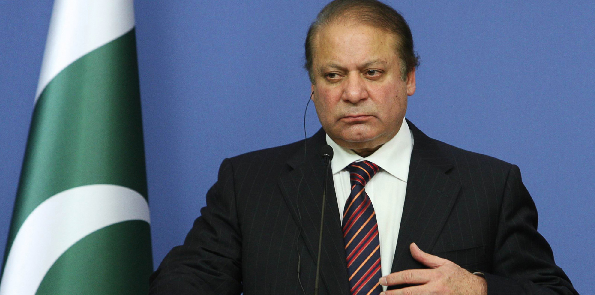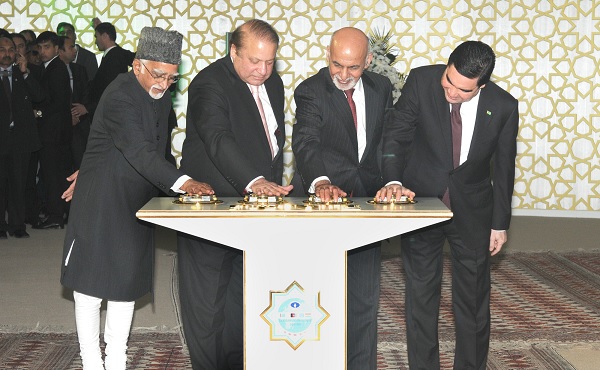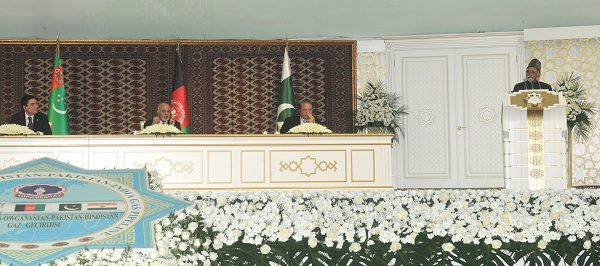
by Editor | May 25, 2021 | News, Politics
 Islamabad, (IANS) Pakistani Prime Minister Nawaz Sharif paid Rs.9.77 million in wealth tax from 1993 to the end of his “forced exile” in November 2007, but has not paid any wealth tax over the past seven years.
Islamabad, (IANS) Pakistani Prime Minister Nawaz Sharif paid Rs.9.77 million in wealth tax from 1993 to the end of his “forced exile” in November 2007, but has not paid any wealth tax over the past seven years.
A document detailing tax payments by Sharif, submitted by him to the National Assembly, showed the wealth tax column as blank from 2009 to 2016. It also did not mention the taxes paid in the fiscal year 2008-2009, Dawn online reported.
Sharif remained in exile in Saudi Arabia from December 2000 to November 2007.
The statement showed Rs.2.49 million was paid as income tax during the current fiscal year, but the column for agricultural tax was blank.
Another document showed that 12 industrial units owned by the Sharif group paid Rs.9.87 billion in taxes between October 1993 and April 2016.

by Editor | May 25, 2021 | News

Prime Minister Narendra Modi meeting the Prime Minister of Pakistan, Mr. Nawaz Sharif, at Raiwind, in Pakistan
Lahore/New Delhi: (IANS) Prime Minister Narendra Modi returned to New Delhi on Friday from Kabul with a dramatic surprise stopover in Lahore where he and his Pakistani counterpart Nawaz Sharif vowed to pursue the derailed bilateral peace process.
During the stopover at Lahore, Modi and Sharif spent some 90 minutes at Sharif’s ancestral residence in Raiwind town, about 40 km from Lahore, and decided to continue the suspended dialogue between the two countries after months of border tension.
It was a telephone call from Modi from Kabul greeting Sharif on his birthday which triggered the dramatic journey — his first to Pakistan and the first by any Indian prime minister in 11 years.
Sharif had attended Modi’s oath taking in New Delhi in May 2014.
A Pakistani official said Modi also blessed the granddaughter of Sharif on her wedding. “Modi had no clue about the wedding,” he said.
The Indian leader, who sipped Kashmiri tea while meeting Sharif, also met the Pakistani leader’s mother.
Modi reportedly told Sharif that it was important for the leadership of the two countries to understand each other’s position. The Pakistani media said the two leaders had decided to take forward their bilateral relations for the benefit of South Asia.
Modi and Sharif agreed to promote people-to-people contacts and confidence building measures.
After returning home, Modi tweeted: “Spent a warm evening with Sharif family at their family home. Nawaz Sahab’s birthday & granddaughter’s marriage made it a double celebration”.
He said he was touched by Sharif’s “affection” towards former prime minister Atal Bihari Vajpayee and said he had recalled their interactions and “asked me to convey his regards to Atal ji”.
He also said he was “personally touched by Nawaz Sharif Sahab ‘s gesture of welcoming me at Lahore airport and coming to the airport when I left”.
Sharif and his brother and Punjab Chief Minister Shahbaz Sharif were among the VIPs who received Modi at the Allama Iqbal International Airport as Modi landed in an Indian Air Force plane. The two leaders then took a helicopter to Raiwind.
Geo TV reported that the visit “was not that surprising” as the Lahore Air Traffic Control had been told about it on Thursday.
But few in India and Pakistan knew about the programme, which came at a time when bilateral relations have shown definite improvement after months of tension and border clashes.
The Pakistan Air Force presented a guard of honour for Modi.
The Pakistan government welcomed the development with Foreign Secretary Aizaz Chaudhry describing it as a goodwill gesture on the part of the Indian prime minister.
Modi and Sharif had fleetingly met at the Paris Climate Summit on November 30, preparing the atmosphere for a resumption of the stalled bilateral dialogue.
Indian National Security Adviser Ajit Doval, who accompanied Modi to Lahore, met his Pakistani counterpart in Bangkok earlier this month. This was followed by External Affairs Minister Sushma Swaraj’s visit to Islamabad.
The two foreign secretaries are set to meet in January, also in the Pakistani capital.
Hours before he left Kabul for Lahore, Modi addressed the Afghan parliament and blasted Pakistan – but without naming the country – for sponsoring terrorism in Afghanistan.
“Terror and violence cannot be the instrument to shape Afghanistan’s future or dictate the choices Afghans make,” Modi told Afghan MPs. Modi reached Kabul early on Friday after a two-day visit to Russia.
In an obvious reference to Pakistan, Modi said there were “some who did not want us to be here”.
“There were those who saw sinister designs in our presence here. There are others who were uneasy at the strength of our partnership. Some even tried to discourage us.”
At the same time, Modi said Pakistan must act like a bridge between South Asia and Afghanistan.
“All of us in the region – India, Pakistan, Iran and others – must unite, in trust and cooperation, behind this common purpose and in recognition of our common destiny.”
Ahead of his address, he and Afghan President Ashraf Ghani jointly inaugurated Afghanistan’s new parliament building which was constructed with Indian assistance of $90 million.
After arriving in Kabul from Moscow early Friday morning, Modi and Ghani held delegation-level talks over breakfast.
The Indian prime minister also met Afghanistan’s Chief Executive Officer Abdullah Abdullah and former president Hamid Karzai.
Modi had left on Wednesday for a two-day visit to Russia for the annual summit-level meeting during which the two countries signed 16 agreements, including those related to defence and nuclear production.

by Editor | May 25, 2021 | Muslim World

The Vice President, Shri Mohd. Hamid Ansari along with the President of Turkmenistan, Mr. Gurbanguly Berdimohamedov, the President of Afghanistan, Mr. Ashraf Ghani and the Prime Minister of Pakistan, Mr. Nawaz Sharif pressing the button to begin the welding process of the TAPI Gas Pipeline, in Mary, Turkmenistan.
Mary (Turkmenistan):(IANS) Assuring his country’s “constructive and cooperative approach” to the project, Indian Vice President Hamid Ansari said on Sunday that the much-awaited TAPI (Turkmenistan-Afghanistan-Pakistan-India) gas pipeline will help integrate economies of South and Central Asia.

The Vice President, Shri Mohd. Hamid Ansari addressing at the Groundbreaking Ceremony of the TAPI Gas Pipeline Project, in Mary, Turkmenistan on December 13, 2015. The President of Turkmenistan, Mr. Gurbanguly Berdimohamedov, the President of Afghanistan, Mr. Ashraf Ghani and the Prime Minister of Pakistan, Mr. Nawaz Sharif are also seen.
“The idea of an economically-integrated South and Central Asia is an idea whose time has come,” Ansari said at the ground-breaking ceremony of the ambitious project in this Turkmen city.
Among others present at the ground-breaking ceremony of the 1,800-km-long TAPI gas pipeline were Turkmenistan President Gurbanguly Berdimuhamedow, Afghanistan President Ashraf Ghani and Pakistani Prime Minister Nawaz Sharif.
Describing TAPI as much more than a gas pipeline project for the four countries, Ansari said that it was a reflection of the common desire of the four member countries to re-connect themselves.
“We are seeking to reclaim our shared geography and revitalise an age-old legacy of our mutually enriching interactions. The launch of TAPI also marks the first step towards fulfilling the vision of an economically integrated region stretching from the Bay of Bengal to the Caspian Sea,” he said.
He said the fact that the ground-breaking ceremony was being conducted in the historic Silk Road city of Mary – earlier known as Merv – was entirely appropriate as “it was here, centuries ago, that caravans carrying goods paused to refresh themselves and thereby bestow on generations to come a colourful tapestry of mutually beneficial exchanges”.
Thanking President Berdimuhamedow for his “untiring leadership and the strength of your commitment towards TAPI”, Ansari also lauded Ghani and Sharif for their active involvement in the project.
“Your strong support for TAPI reflects your interest in securing the economic future of the people of Afghanistan and Pakistan respectively. Your personal commitment to the success of our common venture augurs well for the entire region and for the people of all our countries,” he said.
The Indian vice president said India would take a constructive and cooperative approach towards addressing issues related to the TAPI project.
“We are confident that all issues can be addressed through a spirit of mutual accommodation and sharing of costs and benefits,” Ansari said.
Conceived in the 1990s, initially Turkmenistan, Afghanistan and Pakistan signed a framework agreement to implement the ambitious project after a meeting in Islamabad in 2002 and the preliminary feasibility studies were done by the Asian Development Bank (ADB).
The Indian government requested the ADB for joining the project as an official member in 2006 and became a permanent member during the 10th steering committee meeting in 2008.
With construction expected to be completed in three years, the TAPI pipeline is expected to last 30 years with a proposed annual capacity of transporting 33 billion cubic metres of gas from Turkmenistan’s mammoth Galkynysh field, the world’s second largest reservoir of natural gas.

 Islamabad, (IANS) Pakistani Prime Minister Nawaz Sharif paid Rs.9.77 million in wealth tax from 1993 to the end of his “forced exile” in November 2007, but has not paid any wealth tax over the past seven years.
Islamabad, (IANS) Pakistani Prime Minister Nawaz Sharif paid Rs.9.77 million in wealth tax from 1993 to the end of his “forced exile” in November 2007, but has not paid any wealth tax over the past seven years.


